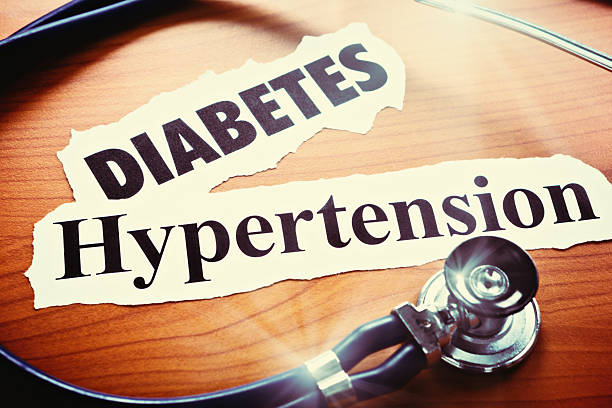The #1 Rated Blood Sugar Formula
Diabetes and High Blood Pressure

High blood pressure is twice as likely to strike a person with diabetes than a person without diabetes. Left untreated, high blood pressure can lead to heart disease and stroke. In fact, a person with diabetes and high blood pressure is four times as likely to develop heart disease than someone who does not have either of the conditions. About two-thirds of adults with diabetes have blood pressure greater than 130/80 mm Hg or use prescription medications for hypertension.
What is high blood pressure?
Blood pressure is the force of the blood pushing against the artery walls. Each time the heart beats, it is pumping blood into these arteries, resulting in the highest blood pressure when the heart contracts and is pumping the blood. High blood pressure, or hypertension, directly increases the risk of coronary heart disease (heart attack) and stroke (brain attack). With high blood pressure, the arteries may have an increased resistance against the flow of blood, causing the heart to pump harder to circulate the blood. Two numbers are used to measure blood pressure. The number on the top, the systolic pressure, refers to the pressure inside the artery when the heart contracts and is pumping the blood through the body. The number on the bottom, the diastolic pressure, refers to the pressure inside the artery when the heart is at rest and is filling with blood. Both the systolic and diastolic pressures are recorded as "mm Hg" (millimeters of mercury).According to the National Heart, Lung, and Blood Institute of the National Institutes of Health (NHLBI), high blood pressure for adults is defined as:- 140 mm Hg or greater systolic pressure and
- 90 mm Hg or greater diastolic pressure
- 120 mm Hg – 139 mm Hg systolic pressure and
- 80 mm Hg – 89 mm Hg diastolic pressure
- Less than 120 mm Hg systolic pressure and
- Less than 80 mm Hg diastolic pressure
What are the symptoms of high blood pressure?
Often, people with high blood pressure do not have noticeable symptoms. If the blood pressure is greatly elevated, a person may experience the following. However, each individual may experience symptoms differently. Symptoms may include:- Headache
- Dizziness
- Blurred vision
Preventing high blood pressure
The American Diabetes Association recommends the following to help prevent the onset of high blood pressure:- Reduce your salt intake
- Engage in stress-relieving activities
- Exercise regularly
- Get to and stay at a healthy weight
- Avoid excessive alcohol intake
- Stop smoking and avoid exposure to secondhand smoke
- Monitor your blood pressure
Treatment for high blood pressure
Specific treatment for high blood pressure will be determined by your doctor based on:- Your age, overall health, and medical history
- Extent of the disease
- Your tolerance for specific medications, procedures, or therapies
- Expectations for the course of the disease
- Your opinion or preference






